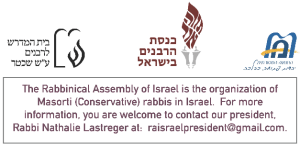
![]()
Parashat Vayikra deals with the terms and conditions of sacrifices. In Lev. 4:22 we read: Asher nasi yeḥeta … — This section of the laws of the purification offering (ḥattat) stands out from the rest. The language employed here for the instance of a chieftain (nasi) committing a sin that requires bringing a ḥattat is different from the terms (ki, im) used to introduce the instances of an offense by a common person or by the entire community.
Rabbi Shlomo Ephraim Luntschitz (1550–1619), author of the Keli Yakar commentary to the Torah, explains:
“An ordinary individual might easily come to commit an unintentional transgression (ḥeit), and thus it is written nefesh ki teḥeta, “should a person commit a ḥeit …). The term ki indicates something will almost surely come to pass.
“But a chieftain (nasi), who is elevated above others, will certainly be guilty of committing a ḥeit. That is why the term asher is used for him; that is language that indicates something certain, about which there is no doubt.”
Parashat Vayyikra holds up a mirror before our leaders: “You are not perfect,” it says, “and we know that.”
The parashah makes an unequivocal statement: Anyone in a position of power sins and makes mistakes, and there is an expectation of atonement for those sins.
May we hear good tidings — or at least better ones — during the month of Nisan, the month of redemption.
![]()
